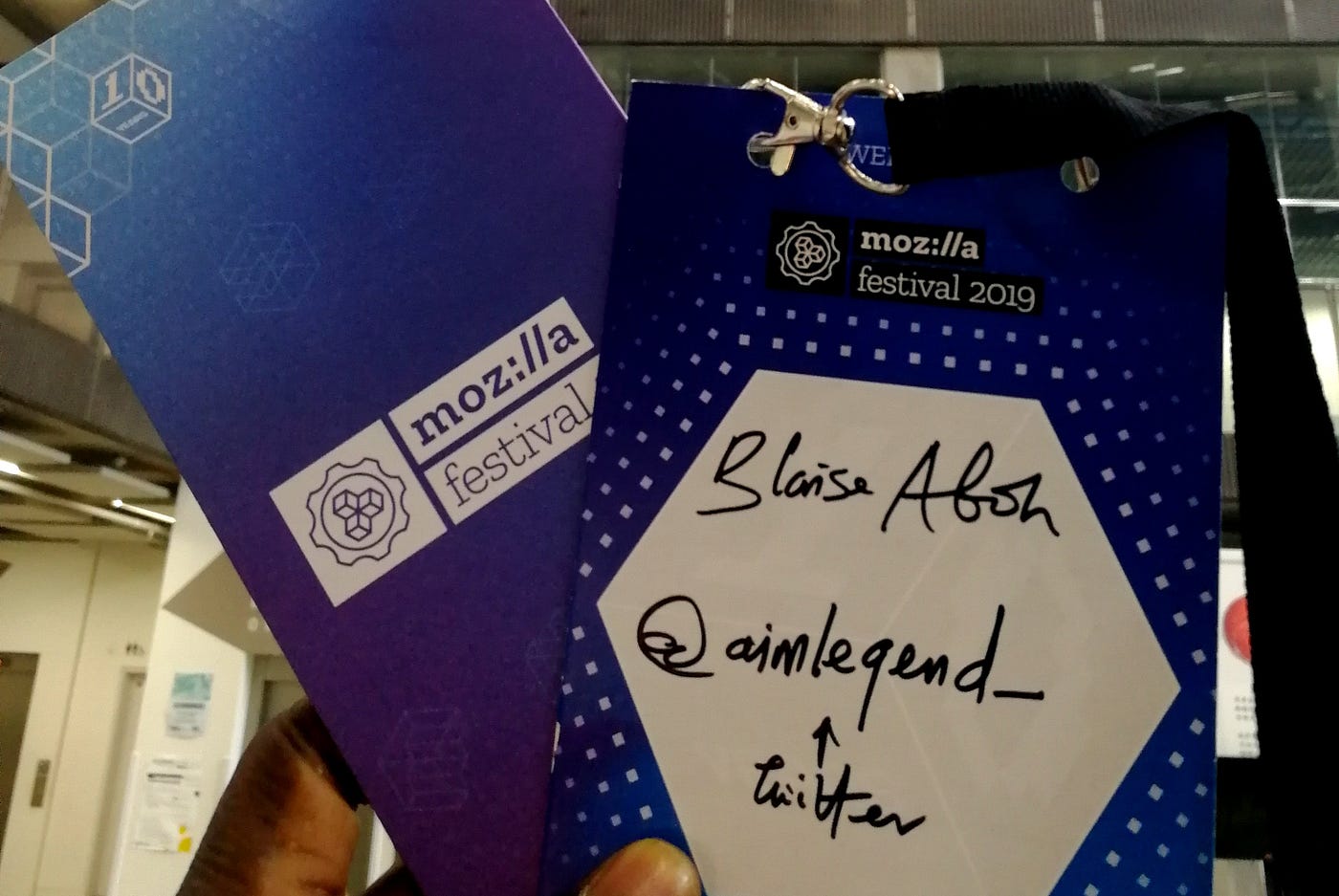
Traveling 6,000 miles in search for knowledge
Late February 2018 I was in New York and Washington DC for a business and tourism trip. I had emerged the winner of the Quartz Atlas for Africa competition, after training over 600 media professionals on using theAtlas chart builder tool — built by Quartz, while working with the reporters to publish over 100 data-driven developmental stories.
The win availed me the opportunity of visiting top media organizations and technology companies in the United States, to learn more about their practices, their forecasts of the future, and how I could apply them in what I currently did.
I had visited the New York Times, Washington Street Journal, Propublica, Quartz, Columbia University of Journalism’s Tow Center, Pulitzer Center, ICFJ Mapbox among others, and met with top-level professionals from each organization. A change was coming to the media; I perceived it as one would perceive dew from the mist. So I needed to learn, to prepare for it.
My days were filled with meetings after meetings, fast-pacing, adrenaline rushing, subway to subway surfing, an amazing something. In a later article I titled ‘Data is the building blocks of life’ which I penned upon my return, I detailed some conversations I had with Propublica’s Ryann Jones and Ken Schwencke at their New York office.
By March I was still doing rounds, I had also visited FIN Digital a DC-based technology development firm building digital products around artificial intelligence, mobile applications, bots, and IoT technologies in. I was so glad that CEO Marcus Finlay agreed to meet with me. A very nice fellow. He told me about some of their projects, we discussed extensively on Facial Recognition technology, Artificial Intelligence, and what the future held.
The chat with Marcus left me with answers, as I headed back to Nigeria much later, I knew where the wind would blow next. After proving my mettle in the data analytics and visualization space in Africa for nearly 5 years, at the time, I had questions of ‘what next’? What else could augment what I was already doing and serve people even better?
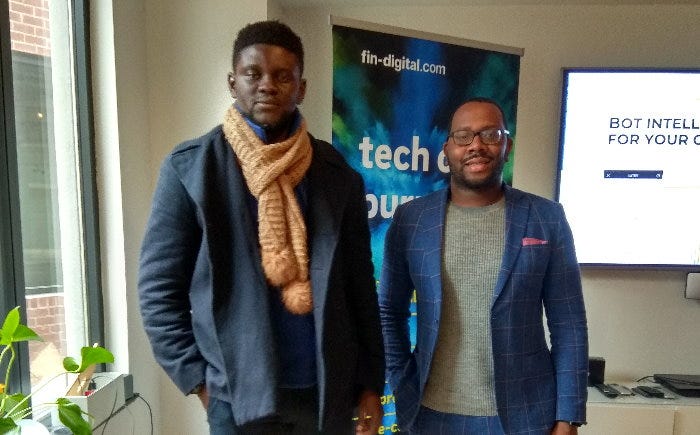
Learning by building
Getting back, I began researching robotic process automation, machine learning, and artificial intelligence. In the process, I co-started AI Envoy Robotics. We had started building robotic software and it made sense to have them under a registered entity, as we didn’t know what the future would bring.
We then built Fintel— a text and voice-enabled bot for financial data discovery, using payment data from Nigeria Inter-Bank Settlement System Plc (NIBSS) as experiential data. Fintel began generating lots of interests for funding after we deployed and showed a few people.
Shortly after, by August 2018, we started gathering previous years’ election data. We were planning on building another bot for the General Elections coming 2019. By November we had ‘Vote:ron’ — a bot for election data analysis, discovery, and narration. We built two versions using two different technology bases due to the limitations that came with the first one.
In February 2019 we deployed it. A month and after the elections, we saw that about 21,000 people had accessed it to retrieve election information. The learning experience was incredible. In the process, I had learned conversation design and everything about Robotic Process Automation.
The call to design for Mozilla
In May 2019 I was asked by Mozilla Foundation to help plan and Co-design the Mozilla Festival 2019 — a technology festival that was focusing on Better Machine Decision Making and ‘Healthy Artificial Intelligence’. For me it was more like “hey we have seen the amazing work your organization has done around AI, data science and journalism, and since they are related closely to the theme of the on-coming festival, we think you have an idea of all this. However, have you thought of how tech like this could influence choices tomorrow negatively? Come help co-curate a healthy tech event”.
The festival this time was marking its 10th anniversary of bringing together educators, activists, techies, researchers, artists, and young people who are creating a better, healthier internet. The Mozilla Festival (#MozFest) annually brought passionate thinkers and inventors from around the world who meet to learn from each other and help forge the future of the web.

For Mozilla, you arrive with an idea and leave with a community. As a wrangler, my responsibilities included; to define the festival’s theme and narratives, reach out and spread the word about the festival to my communities and beyond, curate a program of “sessions” — workshops, activities, and experiences for their space.
There was also the development and management of the schedule of all activities related to spaces, development, and implementation of design strategies to transform physical spaces at the Festival, provide advice and coaching to session facilitators. I was also to serve as on-site support for facilitators and participants and host their space over the festival weekend.
There was also the development and management of the schedule of all activities related to spaces, development, and implementation of design strategies to transform physical spaces at the Festival, provide advice and coaching to session facilitators. I was also to serve as on-site support for facilitators and participants and host their space over the festival weekend.

Internet Health and Web Literacy
There were also the largest tasks, the duration of sessions — reviewing hundreds of proposals sent to the Web Literacy space (which was the space I was co-curating with other Wranglers – Andy Forest, Paul Zenke, Chao Mbogo, Ahmed Razek) and selecting over 30 sessions to come to MozFest. I read through a lot of applications sent in from so many people doing groundbreaking work, it wasn’t an easy job making selections.
There were other spaces aside from the Web Literacy space like; Openness, Digital Inclusion, Decentralization, Privacy & Security and more. The Web Literacy Space focused on promoting the understanding of how algorithmic processes work and offering ways for citizens of the web to become active creators and contributors instead of being just passive consumers.
According to the Internet Health Report 2019, in 2018, the world passed an important milestone: more than 50% of people are now online. At this juncture, Web literacy is more critical than ever before. We make hundreds of choices online every day. For many, it’s now routine to use our phones to pay for coffee or bus tickets or ask a voice assistant to play our favorite song.
But for most of us, the technology we use every day is a black box. We don’t fully understand the implications of the decisions we’re making — or the decisions others are making for us. We are not equipped to identify and address the big questions and serious challenges like bias, harassment, and concentration of power in our connected world.

Unboxing Web Literacy Trick or Treat
The Internet is full of wonderful things, but increasingly companies are luring us in with treats only to trick us with invasive tracking and algorithmic manipulation. We chose Trick or Treat theme for the Web Literacy area which was housed at the Library of the Ravensbourne University, Greenwich. This displayed both the tricks and the treats of the internet.
The idea illuminated all the good things people and organizations are doing online to increase web literacy, however, it also exposed the dark side, showing the tricks being played on us. Data collection, biased algorithms, addiction, manipulation of democracy, etc. Having both the tricks and the treats (ideally connected) encouraged rich discussions.
We had sessions with the following title; Once upon a Time: The Power of Web Literacy, Storytime You as the Queen of England: Create your own Deep fake; Data visualization: dead or alive?; AI Games Jam: designing games for learning about; Encoding and Decoding: A Playful Translation Experience Algorithmic Decision Making — how does it affect you?
Others include; Internet Health Jeopardy Assessing the health of the internet: What data is missing?; Do you know your data?; Hacking Web Literacy in an Hour; My name is Alexa and I’m not your personal assistant; Fairness in Algorithms: A Role-Play Simulation; Fighting Fake News; A Bayesian framework for decision-making; Hidden Values: Embedded Values in Algorithm; Design Learning about AI from children and many more.
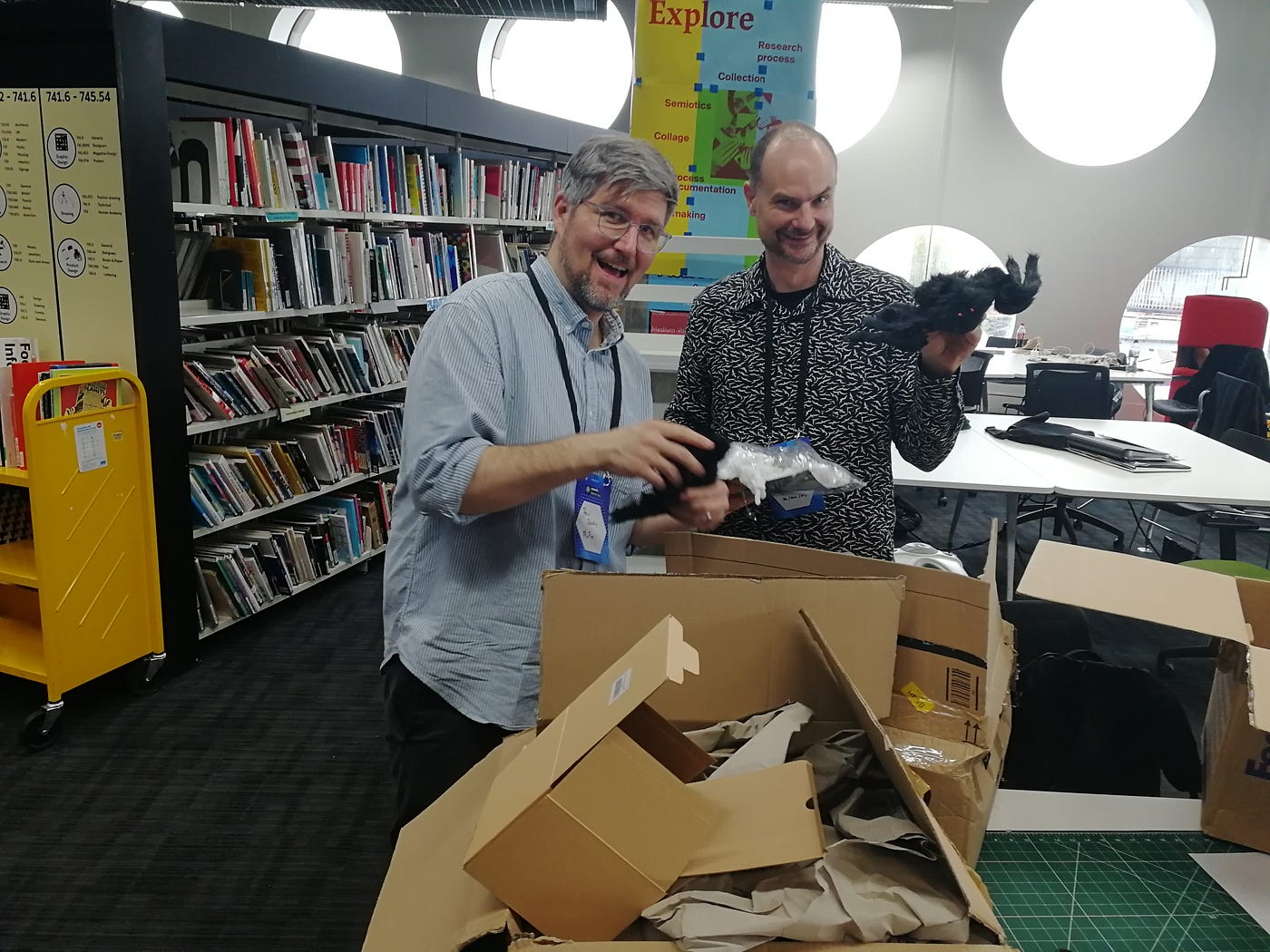
This year’s festival was amazing. I took time out to explore other spaces and saw so many breath-taking space designs and installations. I met other wranglers and co-designers who I heard someone (I cant remember who) call ‘repeat offenders’, because this wasn’t their first or second time working with Mozilla on the festival. For me a first timer, I was practically learning on the job. Nearly 30 conference calls, and 6 months after, my team helped pull off a great festival.
The festival had over 300 sessions and was hosted at Revensborne University, Greenwich. I learnt so much, and met so many amazing people. Special thanks to Sarah Allen, the Program Manager, Dirk, and my amazing team. I look forward to working with Mozilla again next year on another one.
Lastly, we also hosted some awesome people;
Ryan Pitts, Program lead for technology at OpenNews
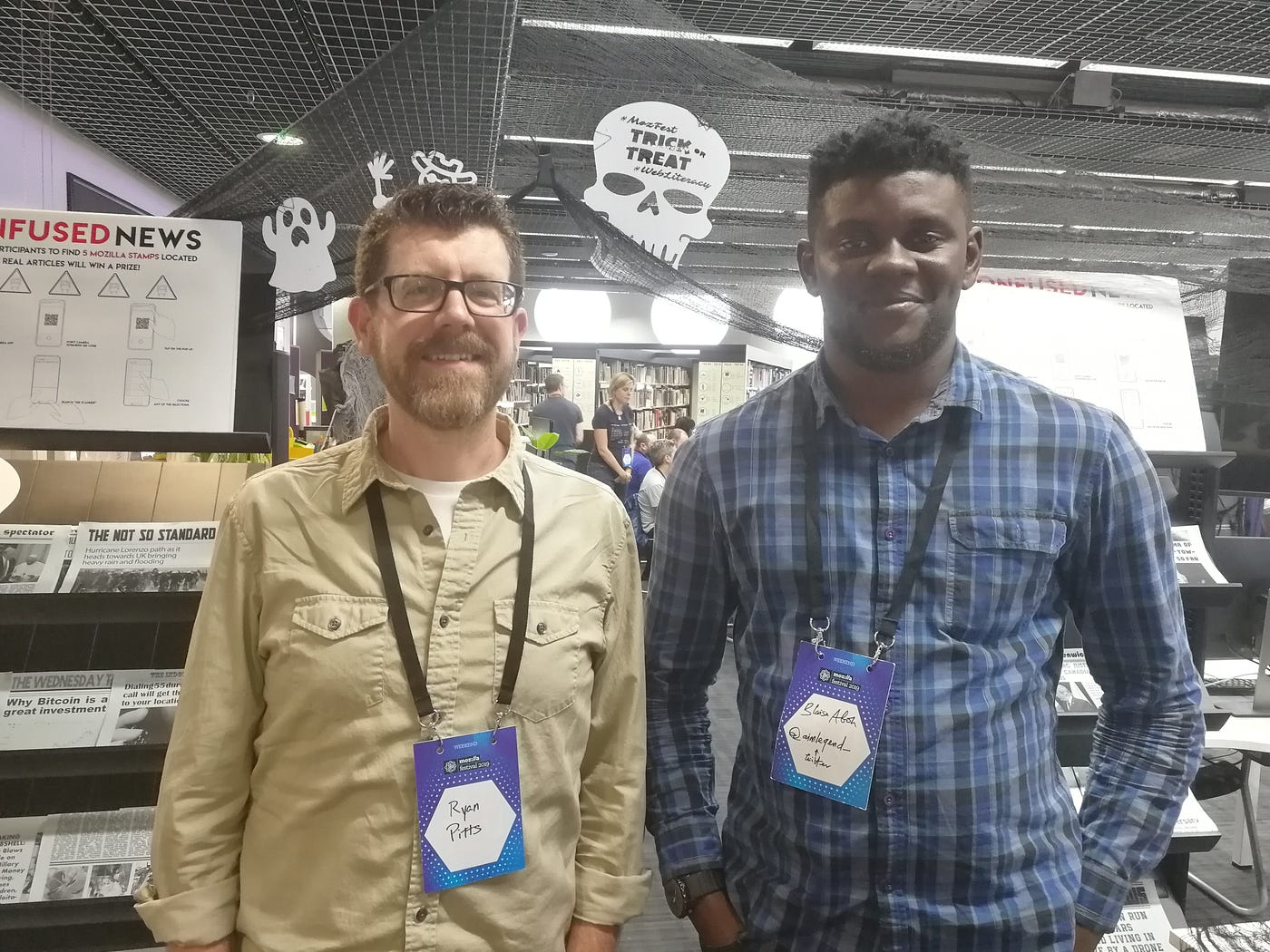
And Mattia Peretti, Manager, Journalism AI, Polis, London School of Economics and Political Science (LSE)
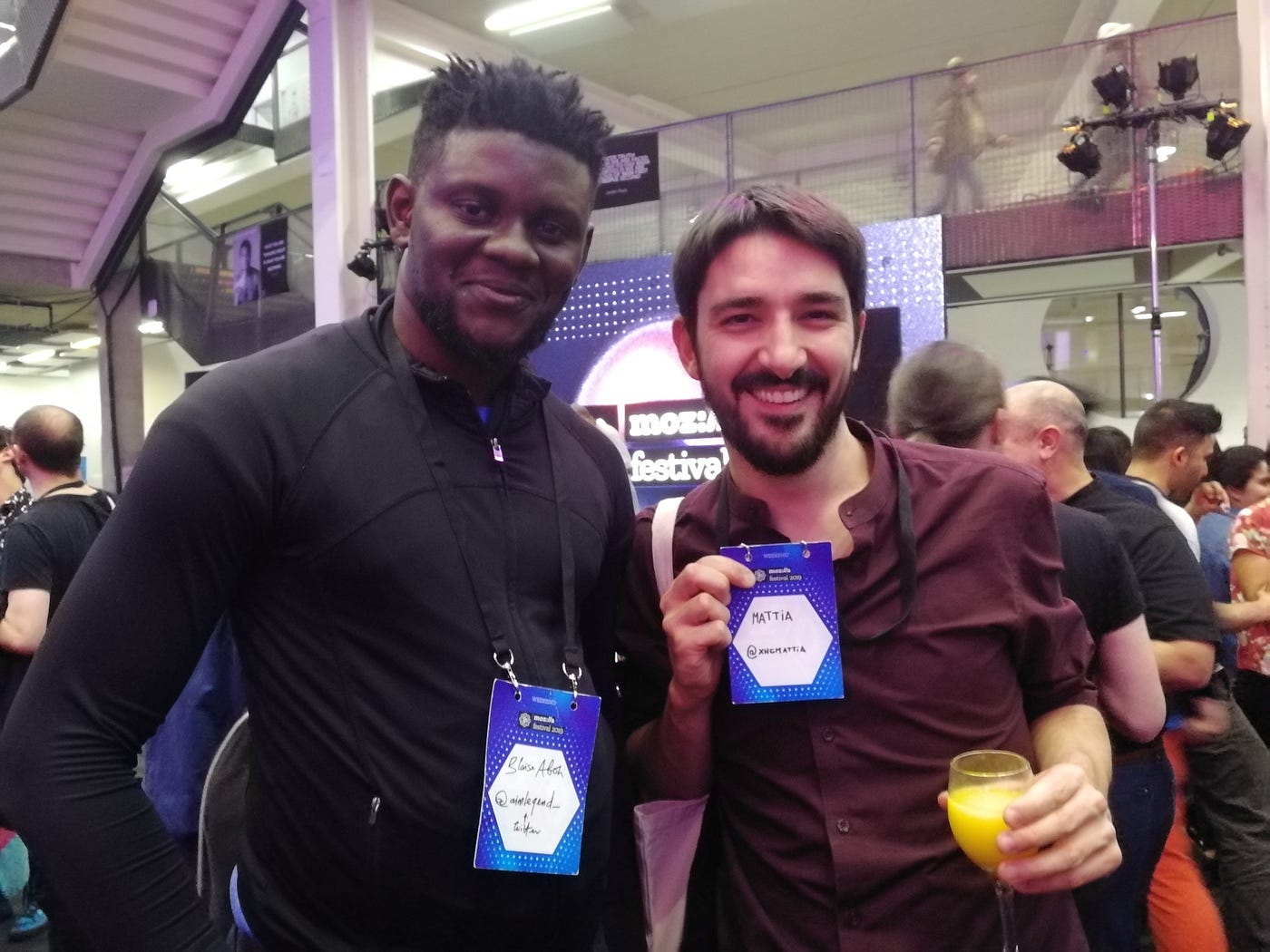
Read more about the festival in the following articles.
Journalism at the MozFest House 2019
By Blaise Aboh, Executive Director, Orodata Science. Should you want to reach out directly to me to discuss collaborations or any submissions here, please email (ba at orodataviz dot com).
